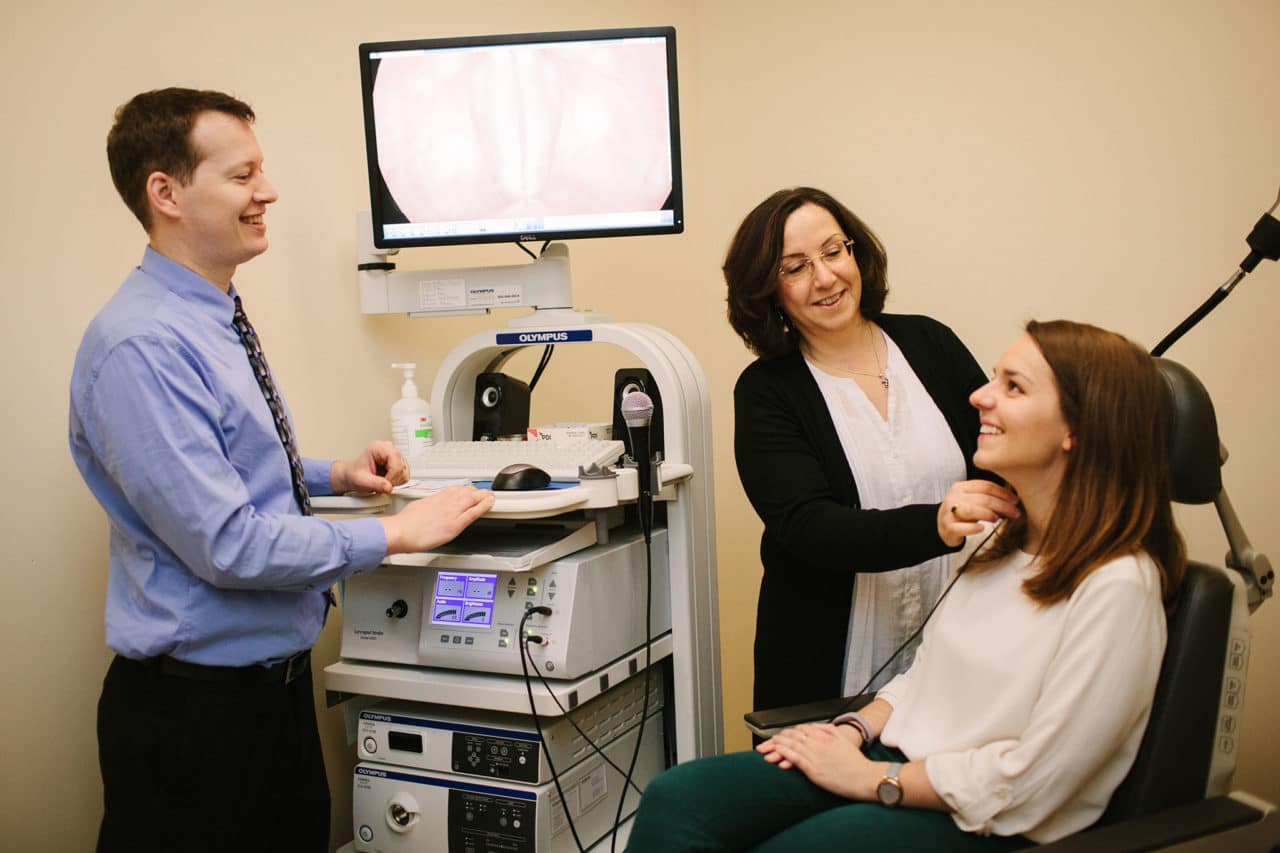What is a Voice Disorder?
A Voice Disorder is defined by persistent voice changes that impact an individual’s ability to communicate effectively. Voice Disorders may affect one’s vocal loudness, quality, and/or pitch. Individuals with Voice Disorders may also experience pain or strain with voicing. Voice disorders can arise after illness or injury, ongoing or acute misuse of the voice, or as a symptom of neurological conditions. Other related disorders include chronic cough, irritable larynx syndrome, and paradoxical vocal fold motion (also known as Vocal Cord Dysfunction).
Assessment

Before seeing a speech-language pathologist (SLP), patients must be evaluated by an otolaryngologist (ENT). After the medical evaluation, the ENT will indicate if the patient is a good candidate for voice therapy. If voice therapy is recommended, a speech-language pathology appointment may be scheduled. At the assessment with an SLP, specific qualities of the patient’s voice are measured using computer-based analysis (non-invasive). Assessment also includes an extensive interview of vocal health history, symptoms of the voice concern, and specifics of how the voice problem is impacting the patient’s quality of life.
Treatment
Voice therapy consists of a series of holistic treatment sessions that combine evidence-based programs with personalized practice techniques specifically designed to fit the lifestyle and vocal demands of each patient. Voice therapy is extremely collaborative and depends on the teamwork of the clinician, patient, and physician. Home practice is an integral part of the voice therapy trajectory.
Links for more Information
American Speech and Hearing Association: www.asha.org
National Center for Voice and Speech: www.ncvs.org